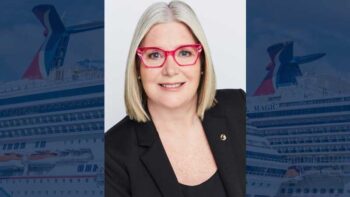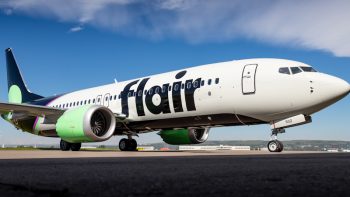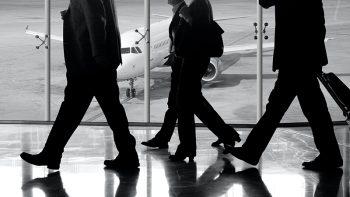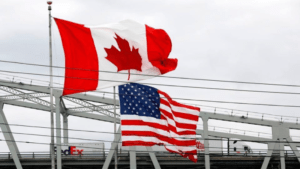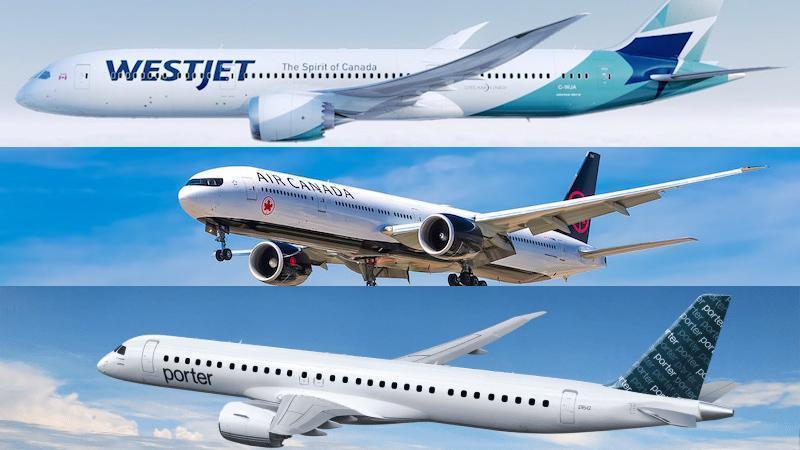
They’re not saying much just yet, but previous comments from the major Canadian airlines tell us a lot about how they may respond to the Competition Bureau hearings announced this week.
The federal government on 27MAY said the Competition Bureau will move ahead with public consultations between now and 17JUN as it sets parameters for what could be fiery testimony about the state of the Canadian aviation industry.
The Bureau says relatively high prices, market concentration, and rising customer complaints are fuelling its study into Canada’s airlines.
Since the Canadian population is spread out over vast distances, other modes of transportation may not be feasible replacements for air travel,” said Commissioner of Competition Matthew Boswell. “More competition in the industry will mean lower prices, better services, and improved productivity."
"What we're trying to do here is study how competition is working in the sector, really with a view to making recommendations to government," Deputy Commission Anthony Durocher told the CBC. "Why this matters is because we know that competition means lower prices, more choice, more innovation."
This will be the bureau’s first so-called “market study” under new rules that allow it to apply for a court order to compel someone to provide information.
Air Canada said it didn’t have any immediate comment on the looming hearings. The airline instead referred Open Jaw to recent testimony to the House of Commons Transportation Committee by David Rheault, VP of Government and Community Relations.
“Close to 70 international carriers operate to Canada and compete with Canadian airlines. Some of these carriers are two- to three-times larger than Air Canada,” he said.
There has also been a significant increase in competition in the domestic market, with other carriers increasing capacity – including WestJet, Porter, and Flair Airlines. While in 2001, Air Canada’s capacity share of the domestic market was around 75%, it is currently around 43%, Rheault said.
There are 24 airlines serving the Canadian domestic market, including 20, offering more than 50,000 seats per year. Three carriers have more than 10% of the capacity, for a total of 82% of the capacity, he said.
Air Canada's share, as stated, is around 43%, according to Air Canada statistics. WestJet is at 39%, and Porter Airlines is at 11%.
In Australia, with a population of 26 million, Qantas has 58% of the capacity, and more than 90% of the total capacity belongs to two carriers. Australia has 13 carriers in all, compared to 24 in Canada.
There are just 10 carriers in France, and Air France has 54% of the domestic capacity.
In the U.S., “probably the most competitive market in the world,” four carriers have at least 10% of the market for a total of nearly 80% (United, Delta, Southwest and American.)
However, Rheault said there are challenges unique to Canada that limit airlines' ability to stimulate the market, offer more attractive fares, and develop our Canadian airports.
“First, our geography poses a particular challenge. Canada has relatively few major cities, long distances and a difficult climate.
Also, we have a model in Canada where travellers pay all the costs, and where some revenues are not reinvested by governments. Revising this model would make travel more affordable.”
For example, Rheault said, airports pay rent to the government, which totalled around $400 million last year. They also make payments in lieu of taxes to municipalities.
In addition, he said Canadian travellers are subject to high fees and charges. This includes security fees, which have risen by 30% in the 2023 budget and now exceed $34 for an international flight. In the U.S., the equivalent fee is $5.60 USD.
Also, airports charge airport improvement fees to fund infrastructure, which can reach $46 per flight in Canada (compared to $4.50 in the US, where the government reinvests excise taxes in the system and has announced $40B US to support airport infrastructure).
Finally, air navigation fees are also higher in Canada, Rheault added.
WestJet recently put forth three recommendations to improve affordability and competition immediately.
“As the airline that democratized air travel in Canada, we are committed to meeting the diverse needs of our guests and the communities we serve,” said spokesperson Morgan Bell. “Air travel is essential to our country, and we welcome interest from all groups as we continue to focus on bringing more affordable and innovative travel options to Canadians.”
The three recommendations recently issued by WestJet are as follows:
1. A comprehensive review of Canada’s user-pay system for aviation infrastructure. This review should consider competitiveness impacts, intermodal equity, border leakage and value for taxpayers.
2. An immediate freeze on mandatory imposed government fees, charges and policies that increase the cost of travel.
3. The cessation of the collection of airport rents by the federal government.
Jeff Morrison, head of the National Airlines Council of Canada, told Open Jaw that the Competition Bureau will first examine the terms of reference for the so-called market study.
“Once that consultation is complete, the Competition Bureau will identify a more specific scope that the study will take, and then will begin the study process, he said. “Until a more precise Terms of Reference is identified, we won't be able to comment on some of the larger themes.”


